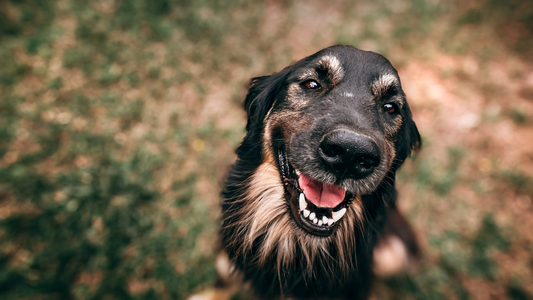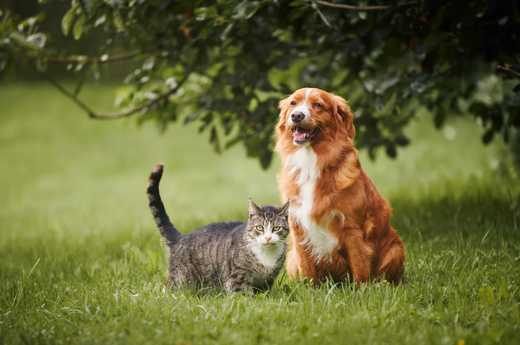Caring for pets with specific health issues requires a thoughtful approach to their diet. Whether your furry friend is dealing with allergies, diabetes, kidney disease, or obesity, tailored nutrition can make a significant difference in their quality of life.
In this blog, we'll explore expert feeding tips for dogs and cats facing these and other health challenges. From selecting the right ingredients to understanding portion control, our aim is to help you provide the best possible care through informed dietary choices. Let's dive into the world of specialized pet nutrition and discover how the right food can support your pet's health and happiness.
1. Urinary Health
- Dogs:
- Opt for a diet that promotes hydration, such as wet food, to help flush the urinary system.
- Look for foods specifically formulated for urinary health that are lower in magnesium, phosphorus, and calcium.
- Ensure the diet has balanced pH levels to prevent the formation of urinary crystals and stones.
- Cats
- Wet food is highly recommended to increase water intake.
- Diets formulated for urinary health often contain controlled levels of magnesium, phosphorus, and calcium.
- Encourage water consumption by providing multiple water sources and possibly using a cat water fountain.
2. Weight Management
- Dogs:
- Choose a high-protein, low-fat diet to help maintain lean muscle mass.
- Feed measured portions to avoid overfeeding and incorporate regular exercise.
- Consider foods labelled for weight management that are lower in calories but high in fibre to promote satiety.
- Cats:
- Use portion control and feed a diet rich in protein but low in fat and carbohydrates.
- Ensure the cat has opportunities for physical activity, such as interactive play sessions.
- Foods designed for weight management can help control calorie intake while providing necessary nutrients.
3. Allergies and Sensitivities
- Dogs:
- Identify and avoid allergens by using hypoallergenic or limited ingredient diets.
- Look for foods that contain novel proteins and carbohydrates that your dog has not been exposed to before.
- Omega-3 and Omega-6 fatty acids can help reduce inflammation and support skin health.
- Cats:
- Use limited ingredient diets or hypoallergenic formulations to identify and avoid allergens.
- Consider a diet with novel proteins, such as duck or venison, and unique carbohydrate sources like peas or sweet potatoes.
- Omega fatty acid supplements can also benefit cats with skin sensitivities or allergies.
4. Dental Health
- Dogs:
- Provide dry kibble designed to promote dental health, which can help reduce plaque and tartar buildup.
- Dental chews and toys can aid in keeping teeth clean.
- Regular dental check-ups and cleanings are important for overall dental health.
- Cats:
- Dry food can help reduce plaque, but it should not be the sole strategy for dental health.
- Dental treats and toys designed for cats can support oral hygiene.
- Regular veterinary dental check-ups and cleanings are essential.
5. Joint and Mobility Health
- Dogs:
- Choose foods that contain joint-supporting ingredients like glucosamine and chondroitin.
- Omega-3 fatty acids from fish oil can help reduce inflammation and support joint health.
- Maintain a healthy weight to reduce stress on joints.
- Cats:
- Look for diets that include glucosamine and chondroitin for joint support.
- Omega-3 fatty acids are also beneficial for cats with arthritis or joint issues.
- Keeping your cat at an ideal weight can help minimize joint stress.
6. Digestive Health
- Dogs:
- Select a diet high in fibre to promote healthy digestion.
- Probiotics can support a balanced gut microbiome and improve digestive health.
- Avoid foods with artificial additives and fillers that can upset your dog’s stomach.
- Cats:
- A high-fiber diet can help with digestive issues such as constipation.
- Probiotics are also beneficial for cats, supporting gut health and reducing gastrointestinal upset.
- Ensure the diet is free from artificial colours, flavours, and preservatives that might cause digestive disturbances.
7. Skin and Coat Health
- Dogs:
- Omega-3 and Omega-6 fatty acids are crucial for maintaining a healthy skin and coat.
- Diets with high-quality proteins and essential fatty acids promote a shiny coat and healthy skin.
- Avoid foods with artificial additives that can lead to skin irritation.
- Cats:
- Ensure the diet is rich in Omega-3 and Omega-6 fatty acids to support skin and coat health.
- High-quality protein sources are essential for a glossy coat and healthy skin.
- Foods free from artificial additives can help reduce the risk of skin problems.
8. Immune System Support
- Dogs:
- Diets rich in antioxidants, such as vitamins C and E, can help support a robust immune system.
- A balanced diet with a variety of nutrients supports overall health and immune function.
- Probiotics can also contribute to immune health by supporting gut health.
- Cats:
- Foods that include antioxidants are beneficial for supporting the immune system.
- A well-balanced diet with essential vitamins and minerals ensures a strong immune response.
- Probiotics can aid in maintaining a healthy gut, which is integral to immune health.
9. Heart Health
- Dogs:
- Taurine is an essential amino acid for heart health; ensure the diet includes adequate levels.
- Omega-3 fatty acids from fish oil can support cardiovascular health.
- A low-sodium diet can help manage heart conditions.
- Cats:
- Taurine is critical for cats, as they cannot produce it on their own; ensure their diet is taurine rich.
- Omega-3 fatty acids are beneficial for heart health.
- Low-sodium diets can be helpful for cats with heart conditions.
10. Liver Health
- Dogs:
- Opt for diets that are high in quality proteins but low in copper.
- Antioxidants such as vitamin E and vitamin C can support liver health.
- Milk thistle is a supplement that can help protect and repair the liver.
- Cats:
- High-quality proteins and low-copper diets are recommended for liver health.
- Antioxidants support liver function and overall health.
- Milk thistle can be beneficial for liver health in cats as well.
Monitoring and Adjusting
- Regular veterinary check-ups are essential to monitor the effectiveness of any dietary changes and to adjust as needed.
- Keep track of any changes in your pet's health, behaviour, and physical condition after adjusting their diet.
- Be patient and allow some time for the new diet to show its benefits but stay vigilant for any adverse reactions.
- Ensure fresh water is always available for both dogs and cats.
Conclusion
Feeding pets to address specific health issues requires a thoughtful approach tailored to their unique needs. By selecting the right foods and monitoring their health, you can significantly improve their quality of life and manage various health conditions effectively. Always work closely with your veterinarian to ensure that your pet’s diet is optimal for their health and well-being.




